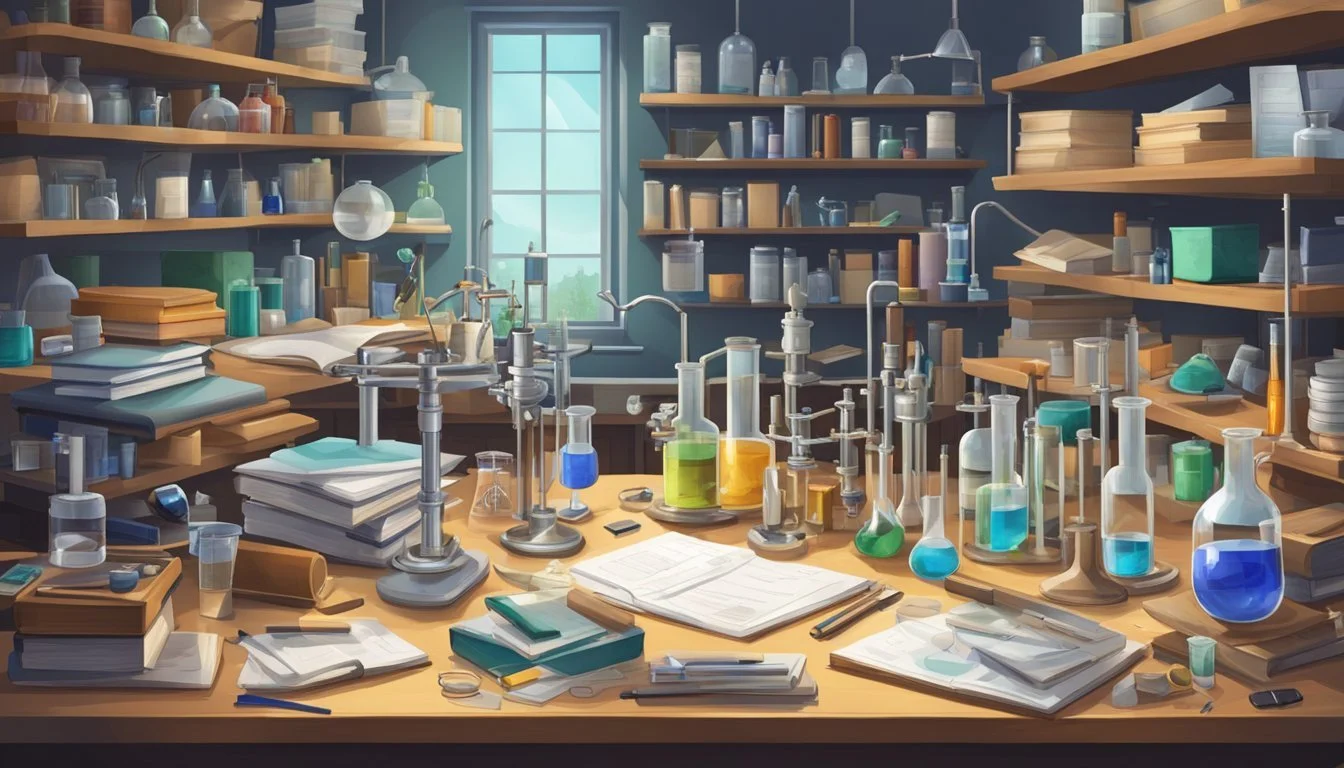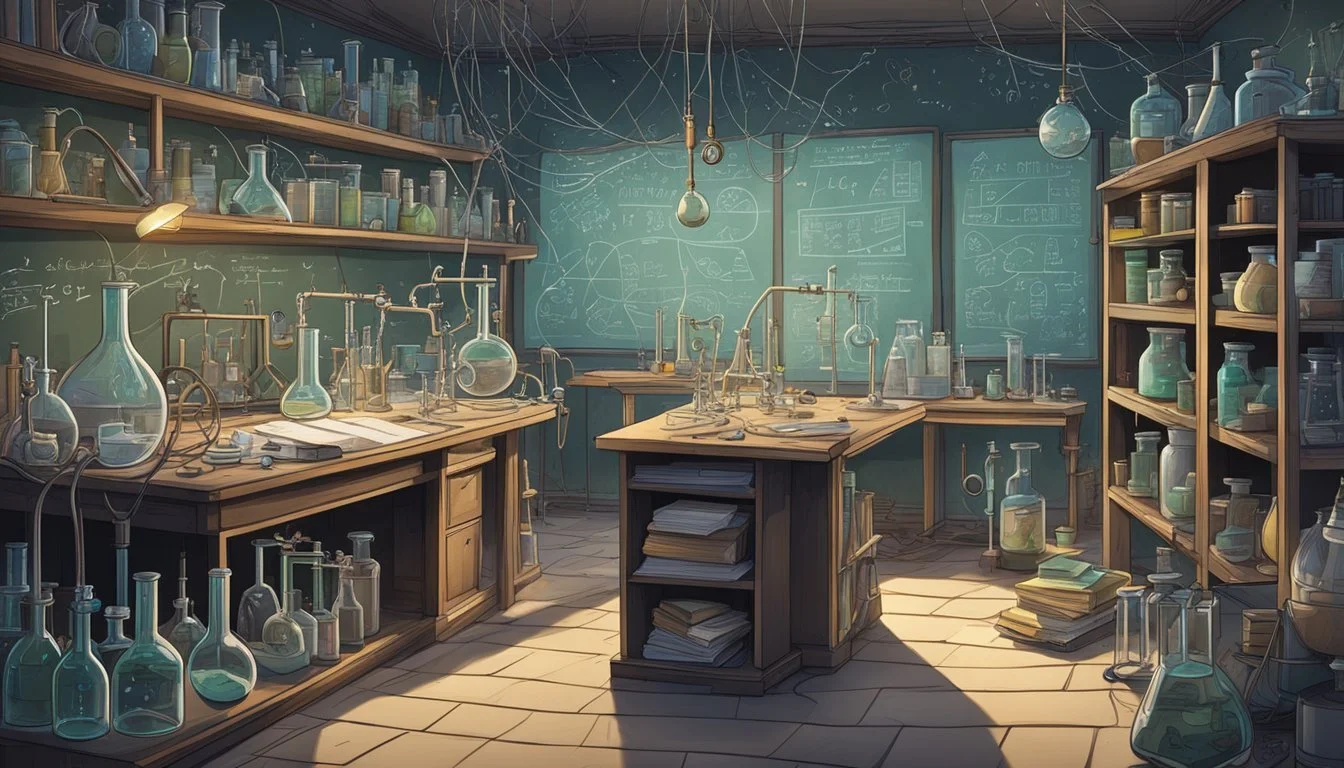6 Documentaries About Everyday Geniuses Who Revolutionized Science
Unsung Heroes of Scientific Breakthroughs
Throughout history, certain individuals have made extraordinary contributions to science and human knowledge. Their groundbreaking ideas and discoveries have reshaped our understanding of the world and continue to influence modern scientific thought. Documentaries exploring the lives and work of these everyday geniuses offer fascinating glimpses into the minds that revolutionized various scientific fields.
These films shed light on the personal journeys, challenges, and breakthroughs of remarkable thinkers who changed the course of human progress. From physicists who unraveled the mysteries of the universe to biologists who transformed our understanding of life itself, these documentaries celebrate the power of human intellect and curiosity. They provide viewers with an opportunity to appreciate the far-reaching impact of scientific innovation on our daily lives and society as a whole.
1) "Einstein's Big Idea" (NOVA)
"Einstein's Big Idea" is a NOVA documentary that explores the story behind Albert Einstein's famous equation E=mc². The film dramatizes Einstein's groundbreaking work in 1905, known as his "miracle year."
During this pivotal time, Einstein developed several revolutionary theories that transformed our understanding of physics. The documentary focuses on his special theory of relativity and its implications for the relationship between mass and energy.
The film also highlights the contributions of other scientists whose work laid the foundation for Einstein's discoveries. It showcases the interconnected nature of scientific progress and the collaborative spirit of the scientific community.
"Einstein's Big Idea" brings complex scientific concepts to life through engaging storytelling and visual explanations. It provides viewers with a deeper appreciation for Einstein's genius and the far-reaching impact of his work on modern physics.
2) "Hawking" by Lucasfilm
"Hawking" is a 2013 biographical documentary film produced by Lucasfilm that offers an intimate look at the life and work of renowned physicist Stephen Hawking. The film chronicles Hawking's journey from his early years as a student to becoming one of the most influential scientists of the 20th century.
Directed by Stephen Finnigan, the documentary features exclusive access to Hawking's personal life and candid interviews with the scientist himself. It explores his groundbreaking theories on black holes and the origins of the universe, as well as his struggle with motor neuron disease.
The film showcases Hawking's remarkable resilience and determination in the face of his physical limitations. It highlights how he continued to make significant contributions to theoretical physics and cosmology despite his deteriorating health.
"Hawking" also delves into the scientist's personal relationships, including his marriages and family life. The documentary provides a balanced portrayal of Hawking as both a brilliant mind and a complex individual.
Through a combination of archival footage, interviews with colleagues and family members, and Hawking's own narration, the film paints a comprehensive picture of his extraordinary life and legacy.
https://en.wikipedia.org/wiki/Hawking_(2013_film)
3) "The Story of Ada Lovelace"
Ada Lovelace, born in 1815, was the daughter of the poet Lord Byron and mathematician Anna Isabella Milbanke. Her mother ensured Ada received a rigorous education focused on logic and mathematics.
Despite her mother's efforts to steer her away from poetry, Ada maintained a fascination with her father's creative legacy. This unique blend of analytical and imaginative thinking would prove crucial in her later work.
In the 1840s, Ada collaborated with Charles Babbage on his Analytical Engine, an early mechanical computer. She wrote extensive notes on the machine, including what is considered the first algorithm intended to be processed by a computer.
Ada's visionary ideas extended beyond simple calculations. She theorized that computers could be used to create music and manipulate symbols, concepts far ahead of her time.
Her contributions to computer science were largely overlooked until the mid-20th century. Today, Ada Lovelace is recognized as a pioneer in the field of computing and an inspiration to women in STEM.
IMDb: Ada's Ideas: The Story of Ada Lovelace, the World's First Computer Programmer
4) "Ramanujan: The Man Who Knew Infinity"
"The Man Who Knew Infinity" is a biographical film that portrays the life of Srinivasa Ramanujan, an Indian mathematical genius. Released in 2015, the movie stars Dev Patel as Ramanujan and Jeremy Irons as his mentor, G.H. Hardy.
The film explores Ramanujan's journey from humble beginnings in Madras, India, to his groundbreaking work at Cambridge University. It showcases his exceptional ability to intuitively understand complex mathematical concepts without formal training.
Ramanujan's contributions revolutionized pure mathematics, including number theory and infinite series. His work continues to influence modern mathematics and has applications in various fields.
The movie highlights the challenges Ramanujan faced due to cultural differences and academic skepticism. It also depicts the deep friendship that developed between Ramanujan and Hardy.
"The Man Who Knew Infinity" brings attention to Ramanujan's remarkable legacy and his impact on the world of mathematics. It serves as an inspiring tale of genius overcoming adversity.
IMDb: The Man Who Knew Infinity
5) "Tesla: Master of Lightning"
"Tesla: Master of Lightning" is a compelling documentary that explores the life and achievements of Nikola Tesla, one of history's most innovative electrical engineers. The film sheds light on Tesla's groundbreaking inventions and his significant contributions to modern technology.
Directed by Robert Uth and narrated by Stacy Keach, this PBS production offers viewers a comprehensive look at Tesla's scientific journey. It delves into his development of alternating current (AC) electricity and his pivotal role in the creation of radio technology.
The documentary features rare photographs and excerpts from Tesla's autobiographical writings, providing unique insights into the inventor's mind. It also examines some of Tesla's more controversial ideas, including his concept of a "death ray" and particle beam weapons.
"Tesla: Master of Lightning" not only highlights the genius's scientific accomplishments but also touches on his personal life and eccentricities. The film paints a portrait of a visionary who was often misunderstood during his lifetime but whose work continues to impact our daily lives.
IMDb: Tesla: Master of Lightning
6) "Curie: The Courage of Knowledge"
"Marie Curie: The Courage of Knowledge" is a biographical film that offers an intimate portrayal of the renowned physicist and chemist. Directed by Marie Noëlle, the movie explores Curie's scientific journey in early 20th century France.
The film delves into Curie's relentless pursuit of scientific discovery in a male-dominated field. It showcases her groundbreaking work and the challenges she faced as a woman in academia.
The narrative also touches on Curie's personal life, including her partnership with her husband Pierre and her later relationship with a married colleague. These elements provide a holistic view of the scientist's life.
Set against the backdrop of France's scientific community, the film highlights Curie's determination and resilience. It portrays her struggles and triumphs as she navigates both professional and personal obstacles.
"Marie Curie: The Courage of Knowledge" offers viewers a glimpse into the life of the first woman to win a Nobel Prize. It celebrates her contributions to science while acknowledging the barriers she overcame.
https://www.imdb.com/title/tt5705058/
The Unconventional Minds Behind Scientific Breakthroughs
Scientific progress often stems from individuals who think differently. These everyday geniuses challenge established norms and push the boundaries of knowledge through unique perspectives and approaches.
Defining Everyday Genius
Everyday geniuses in science are individuals who possess exceptional creativity and problem-solving skills. They often lack formal training but demonstrate remarkable intuition and insight in their fields. These unconventional thinkers excel at connecting seemingly unrelated concepts to form novel ideas.
Key traits include:
• Intense curiosity • Ability to see patterns others miss • Willingness to challenge accepted theories • Persistence in the face of setbacks
Everyday geniuses frequently work outside traditional academic settings. They may be self-taught or pursue unorthodox research methods that lead to groundbreaking discoveries.
Examples From History
History provides numerous examples of everyday geniuses who revolutionized science. Leonardo da Vinci, renowned for his artistic masterpieces, was also an obsessive scientist and inventor. His keen observations of nature led to designs for flying machines and other innovations centuries ahead of their time.
Another notable figure is Michael Faraday, who began as a bookbinder's apprentice. Despite lacking formal education, Faraday's experiments with electricity and magnetism laid the foundation for modern electromagnetic technology.
More recently, Katalin Karikó faced skepticism while developing mRNA technology. Her persistence over decades ultimately contributed to the rapid creation of COVID-19 vaccines, demonstrating the impact of unconventional thinking in addressing global challenges.
Impact of These Innovators on Modern Science
Everyday geniuses who revolutionized science left an indelible mark on the scientific landscape. Their groundbreaking work continues to shape research and inspire new generations of scientists across various fields.
Influence on Future Generations
These innovators serve as role models for aspiring scientists. Their perseverance in the face of challenges demonstrates the importance of resilience in scientific pursuits. Many established mentorship programs and educational initiatives to nurture young talent.
Some created foundations to fund research grants and scholarships. This financial support enables students to pursue innovative projects and continue their legacy of discovery. Their life stories are often featured in science curricula, inspiring students to think creatively and question established norms.
Universities have established research centers and institutes named after these pioneers. These facilities carry on their work and expand upon their initial breakthroughs.
Enduring Legacy in Scientific Fields
The theories and discoveries of these everyday geniuses form the bedrock of modern scientific understanding. Their work is cited in countless research papers and continues to be built upon by current scientists.
Many of their inventions and methodologies are still in use today, albeit in more advanced forms. For example, early computer designs paved the way for modern supercomputers and artificial intelligence.
Their contributions often span multiple disciplines, fostering interdisciplinary research. This cross-pollination of ideas has led to new fields of study and unexpected innovations.
Several of these innovators' discoveries have been applied to solve real-world problems, improving quality of life globally. From medical treatments to environmental solutions, their impact extends far beyond the laboratory.





